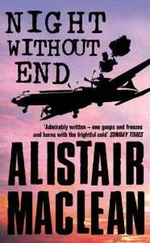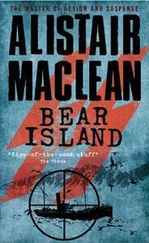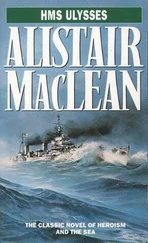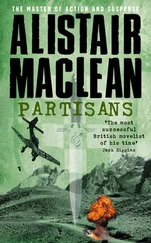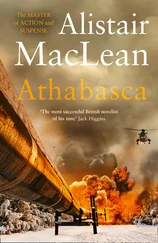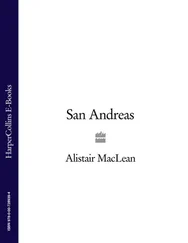Alistair MacLean - Breakheart Pass
Здесь есть возможность читать онлайн «Alistair MacLean - Breakheart Pass» — ознакомительный отрывок электронной книги совершенно бесплатно, а после прочтения отрывка купить полную версию. В некоторых случаях можно слушать аудио, скачать через торрент в формате fb2 и присутствует краткое содержание. Жанр: Старинная литература, на английском языке. Описание произведения, (предисловие) а так же отзывы посетителей доступны на портале библиотеки ЛибКат.
- Название:Breakheart Pass
- Автор:
- Жанр:
- Год:неизвестен
- ISBN:нет данных
- Рейтинг книги:5 / 5. Голосов: 1
-
Избранное:Добавить в избранное
- Отзывы:
-
Ваша оценка:
- 100
- 1
- 2
- 3
- 4
- 5
Breakheart Pass: краткое содержание, описание и аннотация
Предлагаем к чтению аннотацию, описание, краткое содержание или предисловие (зависит от того, что написал сам автор книги «Breakheart Pass»). Если вы не нашли необходимую информацию о книге — напишите в комментариях, мы постараемся отыскать её.
Breakheart Pass — читать онлайн ознакомительный отрывок
Ниже представлен текст книги, разбитый по страницам. Система сохранения места последней прочитанной страницы, позволяет с удобством читать онлайн бесплатно книгу «Breakheart Pass», без необходимости каждый раз заново искать на чём Вы остановились. Поставьте закладку, и сможете в любой момент перейти на страницу, на которой закончили чтение.
Интервал:
Закладка:
O'Brien opened the door, moved out on to the front platform, closed the door behind him and pulled an overhead cord. A second or two later Banlon looked out from his cab and peered backwards to see O'Brien moving his right arm up and down. Banlon gestured in return and disappeared. The train began to slow. O'Brien re-entered and clapped his hands against his shoulders.
'Jesus! It's cold outside.'
'Merely an invigorating nip, my dear O'Brien,' Claremont said with the hearty disapproval of one who has yet to poke his nose outside. He looked at Deakin, now engaged in massaging his freed hands, then at Pearce. 'Where do you want to keep this fellow, Marshal? I can have Sergeant Bellew mount an armed guard on him.'
'No disrespect to Bellew, sir. But with a man so handy with matches and kerosene and explosives – and I should imagine that it would be an odd troop train that didn't carry a goodish supply of all three of those – well, I'd rather keep a personal eye on him.'
Claremont nodded briefly, then turned his attention towards two soldiers who had just knocked and entered. Telegraphist Ferguson was carrying a collapsible table, a coil of cable, and a small case containing his writing material. Behind him his assistant, a young trooper called Brown, was lugging the bulky transmitter. Claremont said: 'As soon as you're ready.'
Two minutes later Telegraphist Ferguson was ready. He was perched on the arm of a sofa, and from the telegraph set before him a lead passed through a minimally opened crack in the window. With his handkerchief, Claremont rubbed the misted window and peered out. The lead looped up to the top of a telegraph pole from which Brown was supported by a belt. Brown finished whatever adjustment he was making, then turned and waved a hand. Claremont turned to Ferguson. 'Right. The Fort first.'
Ferguson tapped out a call-up signal three times in succession. Almost at once, through his earphones, could be heard the faint chatter of Morse. Ferguson eased back his earphones and said: 'A minute, sir. They're fetching Colonel Fairchild.'
While they were waiting Marica entered, closely followed by the Rev. Peabody. Peabody was wearing his graveside expression and looked as if he had passed a very bad night. Marica glanced first, without expression, at Deakin, then, interrogatively, at her uncle.
'We're in touch with Fort Humboldt, my dear,' the Governor said. 'We should have the latest report in a minute.'
Faintly, the renewed sound of Morse could be heard from the earphones. Ferguson wrote, rapidly but neatly, tore a sheet from his pad and handed it to Claremont.
More than a day's journey away over the mountains, eight men sat or stood in the telegraphy room in Fort Humboldt. The central and unquestionably the dominating figure in the room lounged in a swivel chair behind a rather splendid leather-topped mahogany table, with both his filthy riding boots resting squarely on top of the desk. The spurs which he needlessly affected had left the leather top in several degrees less than mint condition, a consideration that apparently left the wearer unmoved. His general appearance attested to the first impression that there was little of the aesthetic about him. Even seated, it could be seen that he was a tall figure, bulky and broadshouldered, with a ragged deerskin jacket pulled back to reveal a sagging belt weighted down by a pair of Peacemaker Colts. Above the jacket and below a stetson that had been old while the jacket was still in its first youth, a high-boned face, hooked nose, cold eyes of a washed-out grey and a week's growth of beard overlaying a naturally swarthy complexion gave one the impression of being in the presence of a ruthless desperado, which was, in fact, a pretty apt description for Sepp Calhoun.
A man dressed in United States Cavalry uniform was seated by the side of Calhoun's table, while several feet away another soldier sat by the telegraph. Calhoun looked at the man by his side.
'Well, Carter, let's see if Simpson really transmitted the message I gave him to translate.' Scowling, Carter passed the message across. Calhoun took it and read aloud: '“Three more cases. No more deaths. Hope epidemic has passed peak. Expected time of arrival, please.”' He looked towards the operator. 'Takes a clever man not to be too clever, eh, Simpson? Ain't either of us can afford to make a mistake, is there?'
In the day coach Colonel Claremont had just read out the same message. He laid the note down and said: 'Well, that does make good news. Our time of arrival?' He glanced at O'Brien. 'Approximately.'
'To haul this heavy load with a single loco?' O'Brien pondered briefly. 'Thirty hours, I'd say, sir. I can check with Banlon.'
'No need. Near enough.' He turned to Ferguson. 'You heard? Tell them–'
Marica said: 'My father–'
Ferguson nodded, transmitted. He listened to the reply, eased his headphones and looked up. He said: “Expect you tomorrow afternoon. Colonel Fairchild well.”
While Marica smiled her relief, Pearce said: 'Could you tell the Colonel I'm aboard, coming to take Sepp Calhoun into custody?'
In the Fort Humboldt telegraph room, Sepp Calhoun was also smiling, but not with relief. He made no attempt to conceal the wicked amusement in his eyes as he handed a slip of telegraph paper to a tall, grey-haired, grey-moustached Colonel of the United States Cavalry. 'Honestly, now. Colonel Fairchild, doesn't that beat everything! They're going to come to take poor old Sepp Calhoun into custody. Whatever in the world shall I do?'
Colonel Fairchild read the message and said nothing. His face expressed nothing. Contemptuously, he opened his fingers and let the message drop to the floor. For a moment Calhoun's eyes became still, then he relaxed and smiled again. He could afford to smile. He looked at the four men close to the doorway, two raggedly dressed white men and two equally unprepossessing Indians, all four with rifles pointed variously at Fairchild and the two soldiers, and said: The Colonel must be feeling hungry. Let him get back to his breakfast.'
Claremont said: 'Now try for the telegraph operator at the Reese City depot. Find out if he has any information for us about Captain Oakland or Lieutenant Newell.'
Ferguson said: The depot, sir? that'll be the station-master. I mean, they don't have a telegraph office in Reese City any more. They tell me the telegraphist left for the Big Bonanza some time ago.'
'Well, the station-master.'
'Yes, sir.' Ferguson hesitated. 'The word is, sir, that he's not seen at the depot very often. He appears to spend most of his life in the back room of the Imperial Hotel.'
'Try, anyway.'
Ferguson tried. He transmitted the call-sign at least a dozen times, then looked up. 'I don't seem to be able to raise them, sir.'
O'Brien said, sotto voce , to Pearce: 'Maybe they should switch the telegraph to the Imperial.' The tightening of Claremont's lips showed that the remark hadn't been quite so sotto voce as intended, but he ignored it and said to Ferguson: 'Keep trying.'
Ferguson tried and kept on trying. His earphones remained obstinately silent. He shook his head and looked towards Claremont, who forestalled him. 'No one manning the other end, eh?'
'No, sir, nothing like that.' Ferguson was genuinely puzzled. 'The line's out of action. Dead. One of the relay repeaters gone, most like.'
'I don't see how it can have gone. No snow, no high winds – and nothing the matter with any of them when we called the Fort from Reese City yesterday. Keep trying while we have some breakfast.' He paused, looked first of all unenthusiastically at Deakin, then in grieved enquiry at Pearce. 'This criminal here, this Houston. Does he have to eat with us?'
'Deakin,' Deakin said. 'Not Houston.'
'Shut up,' Pearce said. To the Colonel: 'He could starve for all I care – but, well, he can sit at my table. If the Reverend and the Doctor don't mind, that is.' He glanced around. 'I see the good Doctor isn't up and about yet.' He took Deakin none too gently by the arm. 'Come on.'
Читать дальшеИнтервал:
Закладка:
Похожие книги на «Breakheart Pass»
Представляем Вашему вниманию похожие книги на «Breakheart Pass» списком для выбора. Мы отобрали схожую по названию и смыслу литературу в надежде предоставить читателям больше вариантов отыскать новые, интересные, ещё непрочитанные произведения.
Обсуждение, отзывы о книге «Breakheart Pass» и просто собственные мнения читателей. Оставьте ваши комментарии, напишите, что Вы думаете о произведении, его смысле или главных героях. Укажите что конкретно понравилось, а что нет, и почему Вы так считаете.

